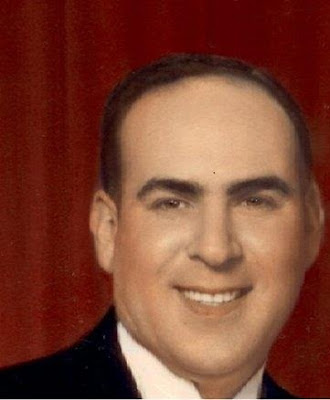A famous vort, attributed to the Kotzker Rebbe, goes like this:
The Kotzker once emerged from his inner sanctum to find his Hassidim swaying while praying. Angry (but wasn’t he always), he cried out: Der vos shokelt zich, shteht fun veitens. Loosely translated, and sacrificing the sharp homiletic, the Kotzker was saying people who shockel miss the point. One is supposed to tremble ‘inside’ (innervenig), and not merely outside.
I was reminded of that comment during Selihot the past two nights. Technically, they were fine. The hazzan’s pronunciation was exact. The cantillation impeccable. What was missing? Soul, awe, dread, fear, apprehension, kavvanah and elation at the opportunity for Teshuvah. There was absolutely no indication that anyone in the places I davened was aware of Rabbenu Yonah’s statement (Sha’are Teshuvah I, 1):
מן הטובות אשר היטיב השם יתברך עם ברואיו, כי הכין להם הדרך לעלות מתוך
פחת מעשיהם ולנוס מפח פשעיהם, לחשוך נפשם מני שחת ולהשיב מעליהם אפו
What did I see? I saw more of what I see all over Israel and all over the Orthodox World. The pace and the body language of the people cried out: ‘It’s 1233AM (sic!). Let’s get this over with quick. I’ll do exactly what I’m supposed to. If the Shaliah Tzibbur misses a note or uses the wrong nusah, I’ll be the first to send him to Golgotha. However, don’t you dare make me devote more time to this than I need to.’ As we all know, in a different context, Tosefet Shabbat be-yetzi’ato is a sin.
This is the tragedy of much of contemporary Orthodoxy. Halakhic punctilliousness has conquered the field, but in too many places spirituality has been banished. As Professor Haym Soloveitchik concludes in his magisterial essay, ‘Rupture and Reconstruction’: ‘Having lost the touch of His presence, they seek now solace in the pressure of His yoke’ (Tradition, 28(1994), 103).
I have no doubt that he is correct. The state of affairs that he describes, however, is neither sufficient nor acceptable. It leaves observance anemic, at best, and totally stale, at worst. The massive search for spiritual expression that presently characterizes contemporary Orthodoxy of every stripe is a loud protest not against Halakhah, but of the legitimate need to infuse mitzvot with feeling and with God’s Presence. The Rov זצ”ל already foresaw this need. From the late 1950’s on, he consistently complained of having failed, as it were, at developing a sensitized spiritual awareness among many of the same disciples who had mastered the Brisker Method and were capable of dazzling hiddushim in every area of Halakhah. (See, e.g., ‘Al Ahavat ha-Torah u-Ge’ulat Nefesh ha-Dor’ and his oft-cited remarks in his eulogy for Reb Haim Heller, ‘Peletat Sofrim’).
In light of this lugubrious reality, is it any wonder that so many of our children and youth take off their kippot?
There is, however, even more to my deep sense of ennui and despair the past few days after Selihot. Ladies and Gentlemen, we are presently in very serious trouble, both as a people and a religion. Assimilation is an aggressive cancer eating away at the body politic of our nation, both here and abroad. The forces of evil really are planning to destroy us, and are developing the means to do so. As the Psalmist said (Ps. 85, 5): They have said: ‘Come, and let us exterminate them as a nation; that the name of Israel may be remembered no more.’ Throughout the Summer, as we read Sefer Devarim, the words of the Torah had an immediacy and a global relevance that I had never felt before. Particularly during the most recent war, I walked around feeling as if I was living in the midst of Shirat Ha’azinu. From conversations with many, many others, I am not alone in that feeling.
Isn’t that enough reason to cry out from the depths of our souls to God to save us? Is it such an imposition to move ourselves to feel? How long will we sophisticate ourselves to death? After all, Tefillah be-Et Tzarah is the commandment of prayer according to the Ramban, and a special dimension (qiyyum) according to the Rambam ( See Sefer HaMitzvot, Aseh 5 and Hassagot Ha-Ramban and Hil. Tefillah 1, 1 and Kesef Mishneh, ad loc.).
Self-satisfaction is the perpetual malady of the Jew. It is also quite lethal, as we will read on Shabbat Shuvah (Deut. 32, 15): ‘Jeshurun thus became fat and rebelled. You grew fat, thick and gross. [The nation] abandoned the God who made it and spurned the Mighty One who was its support.’ This ailment comes in all shapes and sizes, visiting both ostensibly observant Jews as well as the non-observant.
There are a few days left to prepare for Rosh Hashanah. We should search our souls, unleash our souls, and not just check the size of the shofar and the rate of the stop watch to time the teqi’ot.
Our Lives, and our souls, depend upon it.

